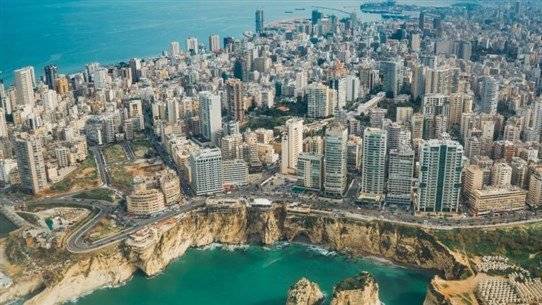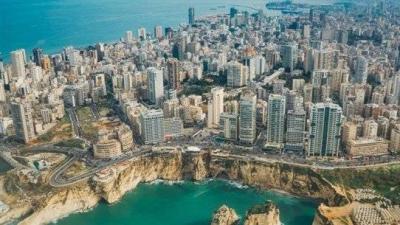Political forces in Lebanon have begun preparing for the period following the end of President Michel Aoun's term on October 31. They estimate that the remainder of his presidency will not bring surprises to push towards electing his successor within the constitutional timeframe, as conditions are not ripe to prevent Lebanon from falling into presidential vacancy, which could, according to a prominent political source, open the door to reshuffling the presidential cards with Army Commander General Joseph Aoun joining the club of presidential candidates, especially if the vacancy in the presidency prolongs.
The political source notes that the calls from Parliament Speaker Nabih Berri for the election of a president, including the upcoming election session scheduled for Thursday, have begun to hit a dead end. Further calls in the last ten days of Aoun's term will face the same fate and will not change the current tumultuous political reality since neither side can decisively resolve the presidential battle as both parties have the "right" to obstruct the election sessions.
The source affirms that the inability to create the internal conditions for electing a president in the foreseeable future also extends to the international community, particularly the countries involved in the election process, which have not yet activated their efforts. They only send their envoys to Lebanon for exploratory rounds to identify the political obstacles hindering the presidential election from occurring on time.
The political source reveals that the recent brief visit of the Assistant Secretary-General of the Arab League, Ambassador Hossam Zaki, to Beirut is part of this exploratory effort and states that it was a response to the call from Caretaker Prime Minister Najib Mikati to Arab League Secretary-General Ahmed Aboul Gheit, emphasizing the necessity of the League's presence. It is deemed unacceptable for the League to remain absent while many officials from European Union countries visit Lebanon to urge key parties to elect a president on time to pull Lebanon out of its crisis after the current government failed to revive.
Zaki's visit to Beirut is categorized as a courtesy call, not because he brought a proposal on behalf of the Arab League to resolve the deadlock surrounding the presidential election, but because he recognizes, based on the political atmosphere during his meetings, that there is a need to prepare suitable conditions to overcome the severe divisions among the decision-making parties in electing a president to prevent the country from falling into a dangerous presidential vacancy.
The source believes that Zaki's visit serves an informational purpose, aimed at understanding the reasons that continue to deepen the rift between active political forces and hinder the country from transitioning to a new phase that could be leveraged to save it from rapidly rolling collapse, with no visible signs of improvement on which to build a path to safety.
He reiterates that Zaki's meeting with Aoun remained within generalities and lasted about 13 minutes, despite Aoun stressing, as usual, the necessity of electing a president within the constitutional deadline, while simultaneously reiterating that he would leave Baabda as soon as his term ends, without staying even a minute past midnight on October 31. In contrast, Bassil's position diverges from his uncle's, particularly regarding his continued hope of being elected president.
The political source states that Bassil speaks of his presidential ambitions as if he resides on another planet or a remote island, refusing to acknowledge that his arrogance and stubbornness no longer serve him, especially since his chances have declined, and he has no opportunity left to revive his presidential aspirations. Thus, Zaki’s meetings allowed him to grasp the political dysfunction that delays the presidential election, as he estimates that no one abroad can assist the Lebanese in overcoming their crises unless they start helping themselves. The Arab League is not expected to propose or show readiness to host a dialogue conference that brings together the main political players needed to avoid missing the opportunity to elect a president.
The upcoming visit of French Foreign Minister Catherine Colonna to Beirut next Friday, a day after the parliamentary session for the presidential election, will neither advance nor delay the situation regarding reconciling the views of conflicting local parties; rather, it aims to elevate the French presence in the Lebanese crisis. Despite this, the French ambassador to Lebanon, Anne Grillo, distinguishes herself from EU and US ambassadors by her openness to "Hezbollah," as seen in her recent visit to the "Loyalty to the Resistance" parliamentary bloc and her meeting with the bloc's leader, Mohammad Raad.
It affirms that Paris has not ceased communication with "Hezbollah," seeking to strengthen its relationship with Iran, unlike the US administration and most European countries. It also notes that France has maintained contact with Tehran due to its significant role in the Lebanese presidential process, while simultaneously adhering to the political framework outlined by the foreign ministers of the United States, Saudi Arabia, and France in their joint statement issued during their meeting in New York on the sidelines of the UN General Assembly.
The visit from the French foreign minister aims to press parties to elect a president within the constitutional timeframe, as Paris’s primary concern remains stabilizing Lebanon and ensuring that necessary reforms demanded from the government are implemented. They maintain an emphasis on avoiding a presidential vacuum due to the negative ramifications it carries, which increase the security burdens on the military and other security agencies.
Furthermore, Paris does not intend to pursue its roadmap for rescuing Lebanon without coordination with the United States and Saudi Arabia, agreeing that electing a president should serve as a bridge to transition Lebanon into a new phase, distinct from the current one that has led to its collapse. This new phase should include forming a competent government, different from traditional cabinets and involving a political and economic action plan, excluding any team accused of financial and political corruption responsible for the country's downfall.
The roadmap should entail controlling the Lebanese-Syrian borders to halt smuggling, ensuring state sovereignty over its territory, and preventing Lebanon from being used as a platform to destabilize Arab nations, particularly in the Gulf, while also addressing the reasons that led to the deterioration of Lebanese-Arab relations. The international community, according to the political source, expects actions from Lebanon rather than rhetoric—actions that previously contributed to its downfall after the current mandate aligned with the resistance axis and dragged Lebanon into regional conflicts.
Therefore, the international community will not be lenient towards Lebanon exiting its Arab orbit, understanding well, as the political source suggests, that the Gulf countries are the most capable of providing assistance to Lebanon, and that a clear path will not be open unless Lebanon commits to the proposed roadmap, starting with the election of a new president, with the army commander’s entry into the presidential candidate circle seen as a fait accompli. This, however, may only manifest publicly once Lebanon enters a presidential vacancy, prompting international intervention employing its political weights to avoid prolonged vacancy.
Finally, it should be noted that General Joseph Aoun, as the political source states, has succeeded at the head of the military institution in maintaining stability under the most difficult circumstances the country is facing. The nature of the upcoming phase necessitates bringing in a president from outside political alignments and narrow calculations. Consequently, the influx of envoys to Lebanon is intended to fill the lost time and respond to the need for preparing local and external conditions for the presidential election.




